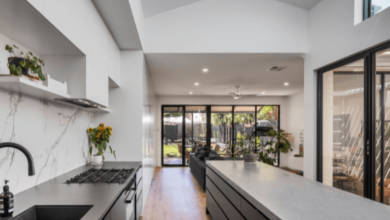How to Sell Your Home Quickly and for Top Dollar

Selling your home can be an overwhelming process, especially if your goal is to sell quickly and for top dollar. The real estate market is dynamic, and timing, presentation, and strategy play crucial roles in determining how fast and how profitably you can close a deal. Whether you’re a seasoned homeowner or selling for the first time, this guide will equip you with the knowledge and tools to make your home sale both swift and financially rewarding.
Understanding the Real Estate Market
Before diving into selling strategies, it’s essential to grasp the current state of the real estate market. Market conditions—whether it’s a buyer’s market, seller’s market, or balanced market—significantly influence your ability to sell quickly and profitably. A seller’s market, characterized by high demand and low inventory, offers the most favorable conditions for selling at a premium. On the other hand, a buyer’s market, where supply exceeds demand, may require more strategic pricing and marketing efforts to attract buyers.
Local market trends also matter. Understanding your neighborhood’s real estate activity, such as average time on the market and recent sale prices, provides valuable insights into setting realistic expectations and pricing your home competitively.
The Importance of Curb Appeal
First impressions matter, especially in real estate. Curb appeal—how attractive your home looks from the street—can significantly impact a buyer’s decision to explore further. Enhancing curb appeal doesn’t necessarily mean a complete overhaul of your home’s exterior. Simple improvements like a fresh coat of paint, well-maintained landscaping, and a clean driveway can make your home more inviting and boost its perceived value.
Consider upgrading your front door, adding potted plants, and ensuring that your lawn is well-trimmed. A welcoming exterior signals to potential buyers that the property is well cared for, which can set a positive tone for the rest of the viewing experience.
Setting the Right Price
Pricing your home correctly is perhaps the most critical factor in selling quickly and for top dollar. Overpricing can scare off potential buyers, leading to a prolonged listing, while underpricing might result in a quick sale but leave money on the table. To set the right price, consider getting a professional appraisal, comparing recent sales of similar homes in your area, and understanding the current market conditions.
A real estate agent with local market expertise can provide a Comparative Market Analysis (CMA) to help you determine a competitive listing price. It’s essential to strike a balance between attracting buyers and maximizing your return on investment.
Staging Your Home for Success
Staging is the art of preparing your home for sale by making it appealing to the highest number of potential buyers. A well-staged home helps buyers visualize themselves living in the space, which can lead to faster sales and higher offers. Start by decluttering and depersonalizing your home. Remove personal items, excess furniture, and anything that could distract buyers from seeing the home’s features.
Focus on creating a neutral and welcoming environment. Consider hiring a professional stager who can bring in furniture and decor that highlight your home’s strengths. Even small touches like fresh flowers, scented candles, and strategically placed mirrors can make a significant difference in how your home is perceived.
Professional Photography and Virtual Tours
In today’s digital age, most buyers start their home search online, making high-quality photography and virtual tours essential. Professional photos can highlight your home’s best features and create an emotional connection with potential buyers before they even step foot inside. Ensure your home is well-lit, clean, and staged before the photo shoot to capture it in the best possible light.
Virtual tours have also become increasingly popular, especially post-pandemic. They allow buyers to explore your home from the comfort of their own space, making it easier for out-of-town or busy buyers to consider your property.
Choosing the Right Real Estate Agent
A skilled real estate agent can be your greatest asset in selling your home quickly and for top dollar. Look for an agent with a proven track record in your area, excellent marketing skills, and a deep understanding of the local market. A good agent will provide valuable advice on pricing, marketing strategies, and negotiating offers.
Ask for references and check online reviews to ensure the agent you choose has a history of successful sales. The right agent will not only guide you through the process but also work tirelessly to market your home to the right audience.
Effective Marketing Strategies
Marketing your home effectively is crucial to attracting potential buyers. A comprehensive marketing plan should include a mix of online and offline strategies. Online listings on platforms like Zillow, Realtor.com, and the Multiple Listing Service (MLS) are essential. Ensure your listing includes high-quality photos, a compelling description, and all the necessary details about the property. Using the Best CRM for Real Estate Investors can further help in managing leads and enhancing your marketing impact.
Social media is another powerful tool for reaching a broad audience. Your agent should promote your home on platforms like Facebook, Instagram, and Twitter to generate buzz and reach potential buyers directly. Additionally, consider hosting an open house to attract local buyers and create a sense of urgency.
Timing Your Sale
Timing can be everything when it comes to selling your home. Traditionally, spring and summer are the busiest times for real estate transactions, with more buyers actively looking. However, this also means more competition. If you’re selling in a highly competitive market, consider listing your home in the early spring to get ahead of the rush.
On the other hand, selling during the fall or winter might attract more serious buyers, as there are typically fewer homes on the market. Discuss with your real estate agent to determine the best timing strategy based on your local market conditions and your personal circumstances.
Negotiating Offers
Once you receive an offer, the negotiation process begins. Your goal is to secure the best possible price and terms. However, it’s important to be flexible and open to compromise. Buyers may request contingencies, such as a home inspection or financing conditions. Work closely with your agent to understand each offer’s strengths and weaknesses and how to negotiate effectively.
Counteroffers are common, and a well-strategized counter can lead to a mutually beneficial agreement. Keep in mind that the highest offer isn’t always the best. Consider factors like the buyer’s financial stability, the closing timeline, and any contingencies that could impact the sale.
Closing the Deal
Closing is the final step in the home-selling process, where all the legal and financial details are finalized. This stage involves signing the purchase agreement, transferring ownership, and receiving payment. Before closing, ensure all required inspections and appraisals are completed, and any repairs agreed upon have been addressed.
It’s crucial to work closely with your real estate agent and attorney (if applicable) to review all documents and ensure everything is in order. Once the closing is complete, you’ll hand over the keys to the new owner and receive the proceeds from the sale.
Considering the Costs of Selling
While selling your home can bring in significant financial returns, it’s essential to be aware of the costs involved. These may include real estate agent commissions, closing costs, repairs, and staging expenses. Understanding these costs upfront can help you set a realistic budget and avoid surprises at closing.
For example, real estate agent commissions typically range from 5% to 6% of the sale price. Closing costs can include fees for title insurance, escrow, and legal services. Additionally, you may need to invest in repairs or upgrades to make your home more appealing to buyers. Factor these costs into your pricing strategy to ensure you achieve your desired profit.
Understanding the Emotional Aspect of Selling
Selling a home is not just a financial transaction; it’s often an emotional experience, especially if you’ve lived there for many years. Memories, attachments, and the fear of the unknown can make the process stressful. It’s important to acknowledge these emotions and find ways to manage them effectively.
Try to focus on the future and the opportunities that come with selling your home. Whether you’re downsizing, relocating, or moving to a new chapter in your life, maintaining a positive outlook can make the process smoother and more rewarding.
FAQs
How can I determine the right price for my home? To determine the right price, research recent sales of similar homes in your area, consider the current market conditions, and get a professional appraisal. A real estate agent can also provide a Comparative Market Analysis (CMA) to help set a competitive price.
What are the most important factors in selling a home quickly? The most important factors include pricing your home correctly, enhancing curb appeal, staging your home, and marketing effectively. Working with a skilled real estate agent also significantly increases your chances of a quick sale.
How can staging affect the sale of my home? Staging helps potential buyers visualize themselves living in your home, which can lead to faster and higher offers. A well-staged home highlights its strengths and makes it more appealing to a broader audience.
Should I make repairs before selling my home? Yes, making necessary repairs before listing your home can increase its value and attractiveness to buyers. Focus on fixing any obvious issues and consider small upgrades that can enhance the overall appeal.
How long does it typically take to sell a home? The time it takes to sell a home varies based on market conditions, location, and pricing. In a seller’s market, homes can sell within days or weeks, while in a buyer’s market, it may take several months.
What are the closing costs associated with selling a home? Closing costs for sellers typically include real estate agent commissions, title insurance, escrow fees, and any legal fees. These costs can vary, so it’s essential to budget accordingly.
Conclusion
Selling your home quickly and for top dollar requires careful planning, strategic marketing, and a deep understanding of the real estate market. By focusing on curb appeal, pricing, staging, and choosing the right agent, you can maximize your home’s value and attract serious buyers. Remember, each step you take to prepare your home






